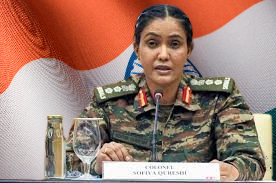The IMF has announced that budget discussions with Pakistan will extend over the next few days

IMF recognizes reforms, measures for controlling inflation, and efforts to promote exchange rate flexibility.

The FY26 budget targets a primary surplus of 1.6%. Discussions on energy reforms are underway to reduce power costs. The next IMF mission is anticipated to take place later this year.
SLAMABAD: The International Monetary Fund (IMF) has stated that negotiations regarding Pakistan’s budget for the fiscal year 2026 (FY26) will proceed in the upcoming days, after a staff-level visit to Islamabad came to an end. The announcement from the mission arrived just hours after the federal government revealed that it would present the Budget for 2025-26 on June 10, rescheduling it from the previously set date of June 2, indicating difficulties in finalizing fiscal targets with the IMF.
The Economic Survey for FY2025, which evaluates the performance of various economic sectors from the previous fiscal year, will be released on June 9, one day prior to the budget announcement, as stated by the finance ministry. A delegation led by IMF Mission Chief Nathan Porter arrived in the capital on May 19 to review recent economic developments, the implementation of programs, and the government’s proposed budget strategy. At the conclusion of their visit, Porter remarked, “We had productive discussions with the authorities regarding their FY2026 budget proposals and broader economic policies, as well as the reform agenda supported by the 2024 Extended Fund Facility (EFF) and the 2025 Resilience and Sustainability Facility (RSF).” The Pakistani authorities reiterated their commitment to fiscal consolidation while ensuring that social and priority expenditures are maintained. The budget for FY26 aims for a primary surplus of 1.6% of GDP.
The Washington-based lender stated that revenue measures currently under consideration include enhanced compliance, an enlarged tax base, and prioritized expenditures. Officials from the IMF and Pakistan also evaluated reforms within the power sector aimed at enhancing financial sustainability and lowering elevated costs. Discussions also covered broader structural reforms designed to promote sustainable growth and create a more equitable business environment. Porter mentioned that the government is dedicated to “effective macroeconomic policy-making,” emphasizing that a stringent, data-driven monetary policy is vital for keeping inflation within the State Bank of Pakistan’s medium-term target of 5-7%. The statement also underscored the necessity of rebuilding foreign exchange reserves, ensuring a fully operational foreign exchange market, and allowing for greater exchange rate flexibility to bolster external resilience. The IMF expressed gratitude for the hospitality and cooperation of federal and provincial authorities and confirmed that the next review mission for the EFF and RSF is anticipated in the latter half of 2025.






